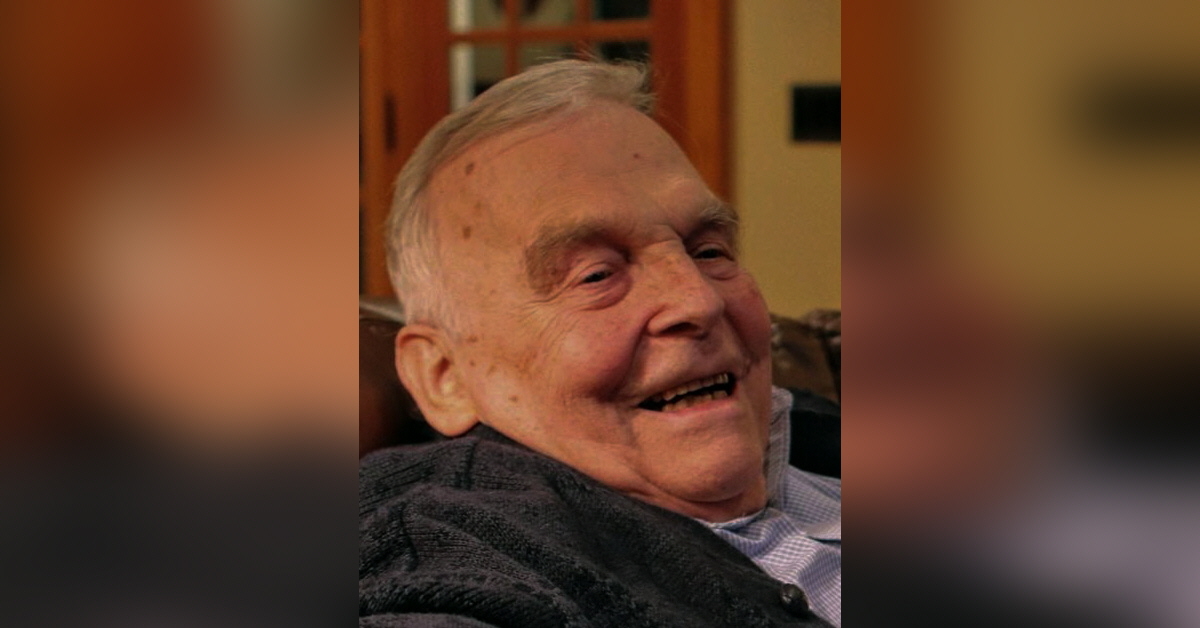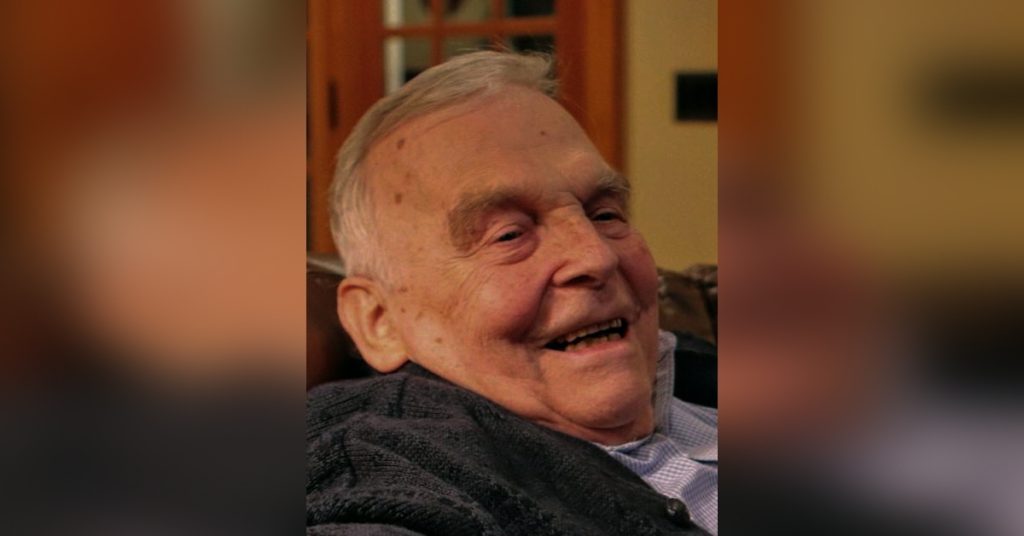- Date Of Birth: February 22, 1930
- Date Of Death: December 21, 2019
- State: Massachusetts
Eberhard “Eb” von Goeler Obituary1930-2019Eberhard was born in Berlin, Germany to Margarethe and Friedrich-Karl Freiherr Goeler von Ravensburg. He had four brothers and sisters: Brigitte and Schweickhard, who predeceased him, and a younger brother and sister: Ravan and Dietlind. The five children were close, growing up together during the World War II and enduring the death of their father in combat and the bombing of their home.The family moved to live with relatives in Poland to be safer, and became refugees near the end of the war, when Russian troops advanced towards Germany. Eberhard, then fifteen, and his mother were responsible for his younger siblings during an arduous six-week winter flight by covered wagon to Western Germany, where they were taken in by friends in a small village near Frankfurt.After the war Eb was able to finish his schooling at boarding school, and in addition to his interest in the natural sciences, came to enjoy choir, and playing piano and chamber music with his siblings. After studying physics at Darmstadt Technical University, Eb was awarded a Fulbright Scholarship to the University of Illinois at Urbana in 1954. A course in quantum mechanics spurred his fascination, in particular deep questions of symmetry in time in space in physics, known as parity conservation. At the end of that year he was invited to join a research group examining violations of parity conservation in radioactive decay. The research drew worldwide interest and Eb – still only a Research Assistant – was introduced to a stream of famous physicists who came to see their progress, including Werner Heisenberg.Eb earned his Ph.D. in Physics in 1961 and returned to Germany with his wife, Marleen, and their infant son Friedel to work in particle physics at the Deutsche Electron Synchrotron (DESY) in Hamburg. Particle physics was then a new field he called “a wonderful but difficult new challenge.” For the rest of Eb’s career he would be an elementary particle physicist in the field which studies the original constituents of the universe, which still provide the basis for all matter. In 1963 Eb accepted a professorship at Northeastern University, and for nearly four decades divided his time between teaching and research at particle accelerators in Europe and the United States. One of his early experiments, in collaboration with MIT, resulted in the understanding that using muons as probes for details of basic particle physics interactions was an excellent way to understand fundamental physical processes. This knowledge was used with great success in most of his later research projects. His final experiment was part of a worldwide collaborative at CERN to find the Higgs boson, the particle thought to generate all other elementary particles. Eb was always grateful to the National Science Foundation for its financial support and to Northeastern University for accommodating his demanding research schedule. At one time Eb’s research brought in more grant money for Northeastern than any other faculty member’s. Eb maintained enduring friendships with physics colleagues Roy Weinstein, Jorge Moromisato, Dick Chase and Wolf Kern. After retirement Eb and Wolf worked together – purely for enjoyment – designing experiments and a new manual for Northeastern’s Introductory Physics Laboratory. Eb was a wonderful pianist. In his younger years he spent evenings playing pieces by Bach, Chopin and others for his own enjoyment and his family’s. He even managed to merge his love of music with his love of physics, developing a course on the Physics of Music at Northeastern, which was his favorite to teach. Tragically, in his forties Eb developed Meniere’s Disease, which caused him not only disabling vertigo, but a profound hearing loss that lasted for the rest of his life. Sound became so distorted to Eb that he was never again able to enjoy the music he loved so much. His hearing loss eventually made ordinary communication painfully difficult for him. Nevertheless Eb remained as engaged with the hearing world as ever. And he became an activist for the hard-of-hearing – working for the Boston Guild for the Hard of Hearing and the Boston Chapter of Self-Help for the Hard of Hearing. When the Guild was unable to continue financially, Eb facilitated its incorporation into Northeastern’s Bouvé College of Health Sciences, guaranteeing that the Guild’s outreach mission – helping low-income residents get hearing tests and hearing aids – would always continue.After Eb retired, he and Marleen moved from Needham to live on a lake in Plymouth, Great Herring Pond. Eb spent summer days sailing, boating with his family and – through frequent snorkeling expeditions with his daughter – learning about the lake’s underwater life and environment. Eb and Marleen’s deep and growing appreciation for the lake motivated them to try to protect it. Together they worked hard, recruiting a group of like-minded people who would use their talents to ensure the health of the Herring Ponds Watershed. This group became the Herring Ponds Watershed Association (HPWA), in service of which Eb and Marleen dedicated the next decade of their lives. Eb’s aim was to understand everything he could to preserve the lake and its environment, as well as ensure the safety of the groundwater from which local residents drew their water. He leveraged his experience in experimental science to teach himself about entirely new fields: hydrology, the animal and plant life of the lake, as well as the impacts of invasive species, pollution and rainwater runoff. For years he patiently collected and analyzed the data needed to measure the health of the watershed. Every day he recorded rainfall and weather data, and the depth of Great Herring Pond’s outlet. Eb taught himself water sampling best practices, and how to use the sampling equipment. He then recruited and educated members of the HPWA so they could continue to measure the lake’s health.Eb’s efforts facilitated projects around the lake to reduce the impact of rain runoff pollution on the lakes and watershed. And although Marleen and Eberhard eventually retired from their positions at the HPWA, he was gratified at what a vital force the HPWA has become.Eb’s enjoyment of nature was life-long. As a very young man in Germany, he worked on a small farm, and said if he hadn’t been a physicist he would have wanted to be a farmer. After Eb’s retirement from the HPWA, he channeled this love into gardening, spending hours in his vegetable garden and growing his beautiful dahlias. He had a particular affection for birds – not the least for a companion parakeet, Kermit, with whom he shared a mutual adoration. Now, from his home above the lake, Eb spent many hours observing life on the pond and came to be able to recognize and photograph the many species of birds that lived there. He kept a journal of observations filled with the excitement of seeing new species, or noticing when the winter ducks made their reappearance. Eb was able to share his natural curiosity with his family. Since his research took him across the country and to Europe, family trips were frequent and full of explorations of natural destinations – from hiking in the Petrified Forest to exploring tide pools in California to fossil hunting in German quarries.He was an attentive father to his three children, Friedel (Darlene Murphy), John (Jessica Slate) and Kate. Whether that meant leading cub scouts, helping with homework, programming computers together, or building exotic snow sculptures with them (a shark, a stegosaurus, a five-foot Garfield…). And he always had the time for long talks on any subject. Eb especially adored his three grandchildren, Karl, Derek and Sabina. He was never too old to enjoy playing games, reading together, or having a good conversation with them. And he would always talk about them with immense grandfatherly love and appreciation for their unique personalities and gifts. In his last years, Eb had growing health problems, and after a heart attack in November followed by kidney failure, he made the difficult decision not to pursue dialysis. His decision was both personal and courageous, but heartbreaking for Marleen, his children, grandchildren, as well as his brother and sister, all of whom love and miss him deeply. Eb’s last wish was to come home in the care of hospice for his final days. There he was able to be with his family and look out at the lake he so loved, and which he had done so much to protect. Because of the circumstances with the pandemic of COVID 19, his memorial service has been postponed.Donations in his memory can be made to the Herring Ponds Watershed Association at: HPWA P.O. Box 522 Sagamore, MA 02562
Source link

